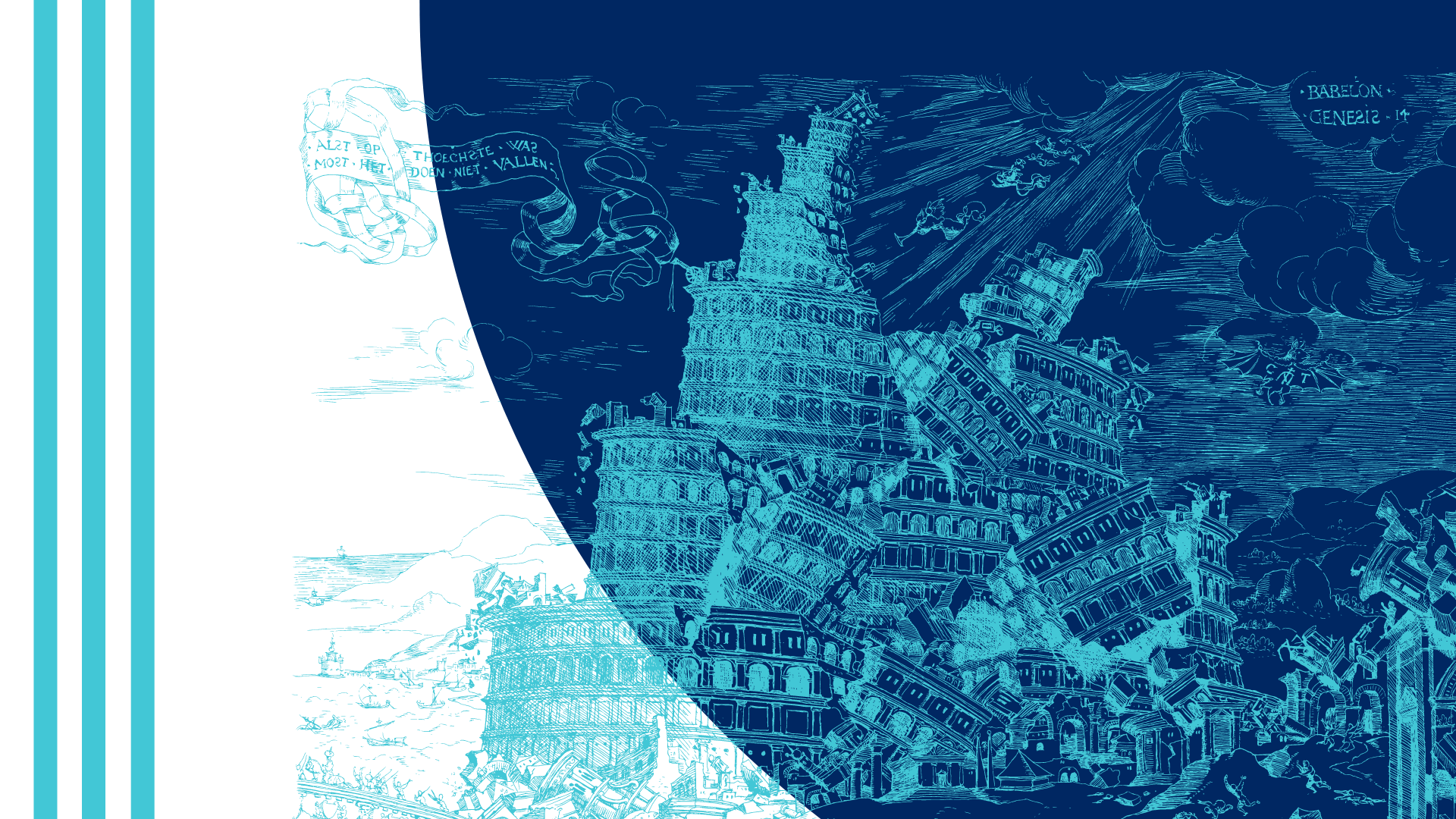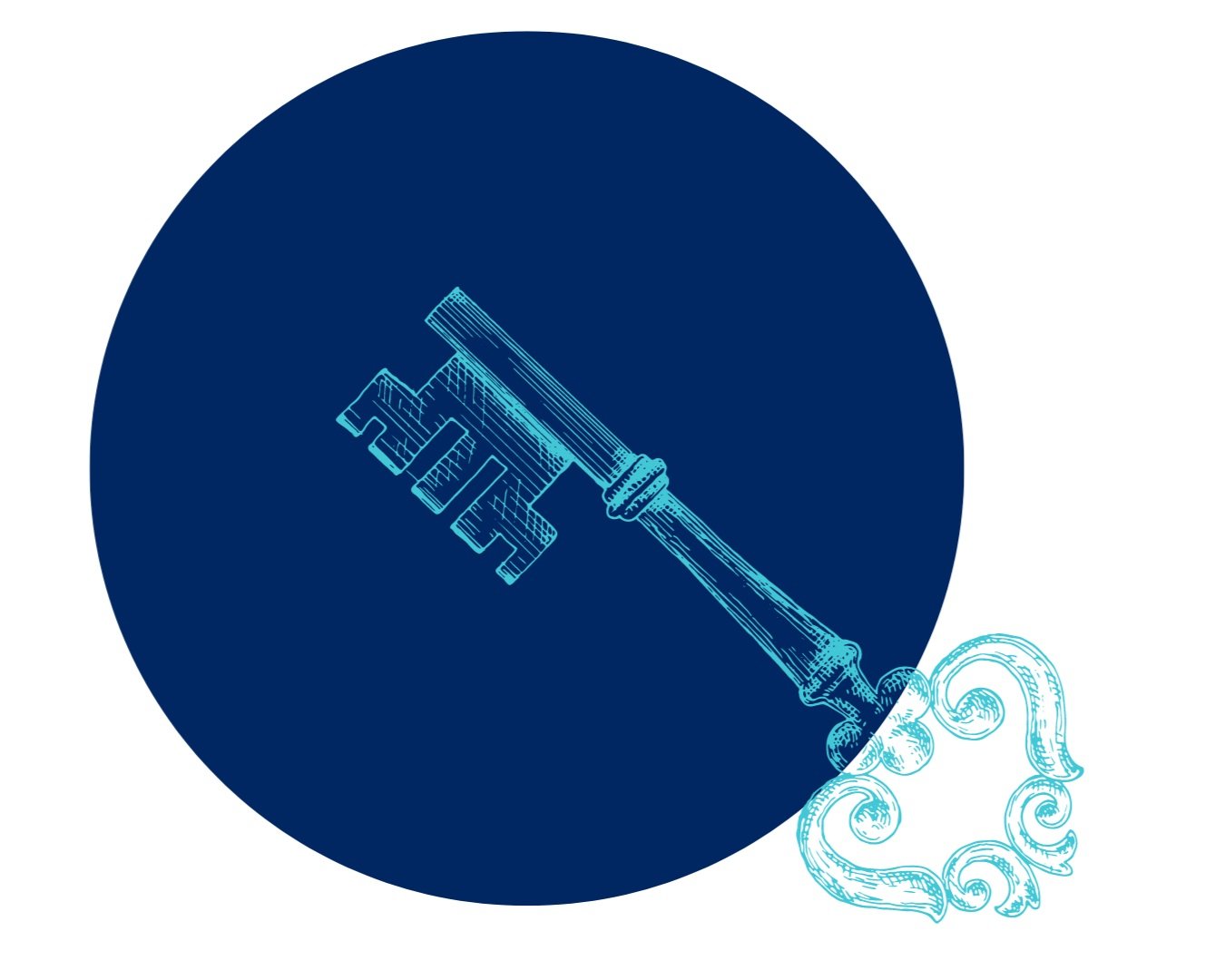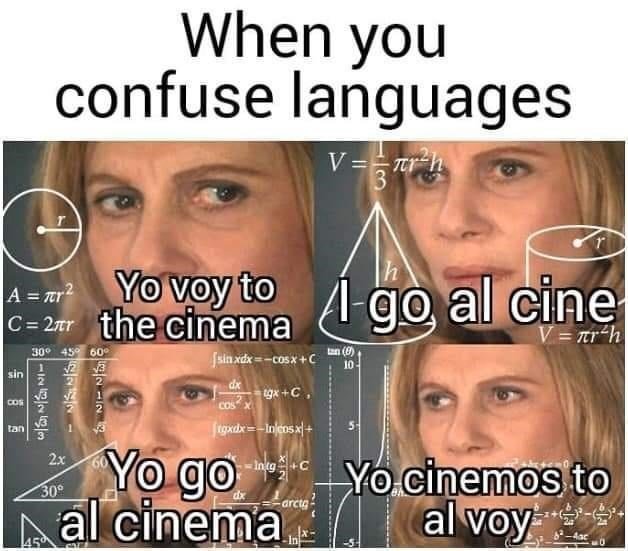My Tower of Babel
My dear friend Lionel W. asked me the other day to write a book on my relationship to languages. The question we asked ourselves was: does language and vocabulary allow to explore thoughts and feelings, or does the human mind think and feel and then use vocabulary to express itself? The question came from a discussion about multilingualism. Many people around the world have more than one mother tongue. This means we think, communicate, feel, count and dream in more than one language. There's much research done in this field; summarising it clearly surpasses the current exercise. And full book might be too long and tedious, I said, but I promised I’d jot down some thoughts on an article. So here it goes.
In my experience, as I child I started to understand that when mom’s people talked to me, I had to chose a certain set of words, whereas when dad’s people spoke to me, I had to use another one. As if there were two boxes (“mom” and “dad" world), I started filling them in with content that was brought by people who surrounded me. I was born and raised in the context of two languages: while Spanish was the basis of my life, we spoke (Swiss)German at home and with my family abroad, and its sibling German at school. When travelling from one home country to the other, I realized at some point that after two weeks, I’d start counting and dreaming in the local language – two very subconscious processes that my mind did automatically.
“Which language do you feel the closest to? Which one is your real mother tongue?”, I’ve often been asked. I can’t name it, because they all have different meanings and purposes to me . I use English to communicate widely and pragmatically, even if it always makes me feel a bit weird to write my thoughts in this language. French is the language of groceries and work emails. Italian and Portuguese, languages of friendly encounters, music and food. German feels like a safe space. Swiss German and Spanish are home, full of artifacts that allow me to feel. And while Swiss German is the language of child love, Spanish is the place where I process feelings best. I have been told that the real mother tongue is the one in which you swear when your little toe hits the bed when coming back from toilet in the night. I beg to differ, as Spanish is objectively for that purpose, clearly just the best among the ones I have to chose from. Humour comes in all shapes and sizes.
Once another friend, S., told me she was going through a rough period because her partner would never know her really, as he doesn't speak her nordic mother tongue. It left me wondering: how much do we have different personalities when expressing ourselves in different languages? I know I switch modus operandi depending on which cultural bagage my brain is currently using. While I find it perfectly obvious to wear a helmet when skiing, that did not used apply for horsebackriding - with pretty bad consequences. Not to mention what happens when being tired…
What I am the most impressed by is, that we are often surprised by people who speak many “important” languages, as once a colleague mentioned the langues I speak. The remainders of colonial regimes that are still very present in our lives. This colleague of Indian origin, spoke five, what he called “non-important” languages. Young people in Papua New Guinea told me they spoke up to seven or eight languages - at the very least. And while in Switzerland we’re proud holders of four national languages, South Africa counts eleven.
At the end of the day, what I love the most about multilingualism is the possibility to enter through the main door of a culture, a history, a Weltanschauung. To communicate with people where they feel at home. And to be astonished how the most beautiful ideas are expressed by people who chose words wisely, even if they are very simple ones.




